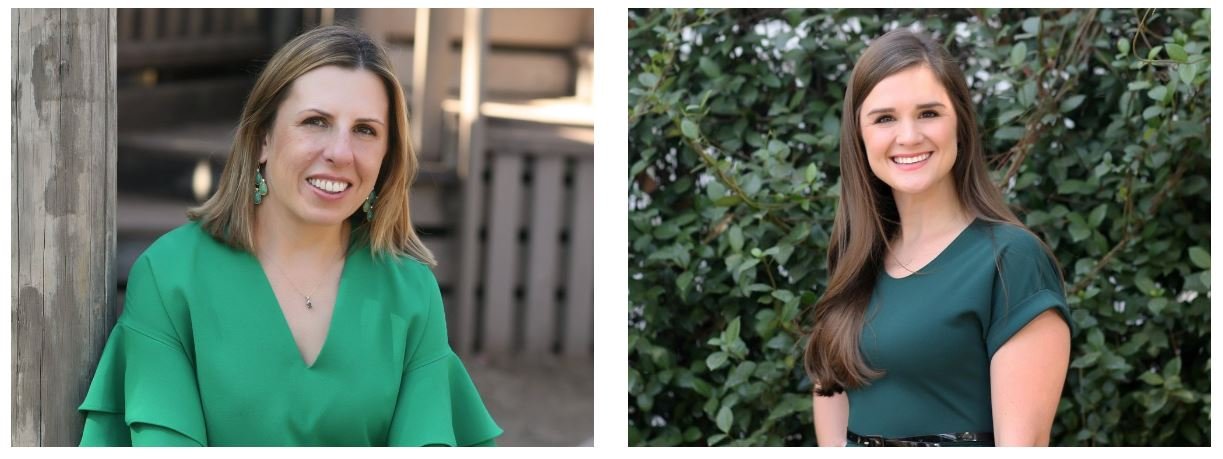May Cavity-Free Club Winner
/Check out our drawing for the CAVITY-FREE CLUB monthly contest winner! Congrats to….
Check out our drawing for the CAVITY-FREE CLUB monthly contest winner! Congrats to….
Our summer contest has begun!! Come in and color our summer pages and put them on the beach backdrop. At the end of summer, we will pick one coloring page to be the winner of a special prize!
The contest ends August 7th! Good Luck!


Happy Father’s Day to all our Dads!! We are filled with joy every time you bring one of your sweet babies to the dentist!!
We hope you all enjoyed this weekend surrounded by your children, lots of love and whatever else makes you happy!
Congratulations to our birthday party winner!! We hope you had a blast swimming with family and friends!
Enter your name in our birthday party box at the front desk for YOUR chance to win a birthday party sponsored by Smiles for Kids!

Opting for a pediatric dentist over a general dentist is no different from choosing a pediatrician over a family doctor for your kids. A general dentist is great for adults, but having specialized in a children’s growth and development, baby teeth formation and treatment, as well as behavior management makes pediatric dentists a better choice when it comes to your child’s oral care.
Many children are not cooperative during early teeth check-ups and cleanings. In this aspect, a pediatric dentist’s additional 2-3 years of hands-on training and education in child psychology and development is definitely an advantage. They are specially trained to make your tots feel safe during treatments and explain oral care and procedures in a manner understandable by kids. We also have highly trained staff that understands that approaching children is a delicate matter and can make little ones’ visits exciting and fun.
Aside from this, pediatric dentists use equipment that is specifically designed for children. Parents can expect the latest technology in ensuring gentle yet effective procedures. After all, kids are known for being impatient so pediatric dentists need to be fast and accurate and must use tools that can complement such a pace.
A pediatric dentist’s office is also something to look forward to as it is often decorated with children in mind. Having a child-friendly office makes children comfortable and cooperative. Children can play or read books while waiting for their appointment. In our office we offer toys for kids of all ages from toddler towers and picture books to video games and movies for our older patients.
For very young children or those who are extremely fidgety, sedation may be administered by a pediatric dentist if treatment of cavities is needed. Options depend on the child’s needs and range from giving oral medications to applying topical anesthetics, using nitrous oxide or going through general anesthesia. The first three techniques leave patients conscious but relaxed or numbed while the last technique renders the patient completely asleep to accomplish treatment.
Treatment of children with mental or physical disabilities is also part of pediatric dental training. In fact, even adults with disabilities and special conditions can benefit from the expertise of pediatric dentists. Examples are those with cerebral palsy, Down syndrome and seizure disorders. A good pediatric dentist will be happy to accommodate all questions from both parents and children and discuss the advantages, as well as risks, of various procedures.
Pediatric dentists welcome patients from infancy to adolescence. Babies as young as twelve months should be brought to the dentist for tooth decay prevention. These appointments educate and guide parents to keep their children’s baby teeth healthy. Toddlers are counseled about pacifier or thumb sucking habits. As for teenagers, pediatric dentists understand their need to keep a pleasing appearance. They guide their older patients to the right treatments in correcting teeth, veneers, teeth bleaching and orthodontia.
This specialized approach to kids of all ages is what makes pediatric dentists the superior choice for children’s dental needs. Pediatric dentists will then pass on a well behaved, excited about oral health and hygiene and well educated patient to their general dental colleagues.
Check out our drawing for the CAVITY-FREE CLUB monthly contest winner! Congrats to….
We are so thankful for all the wonderful moms that share their kids with us. Mothering is a hard job and you are so amazing for doing it this well. Your sweet kids are the testimonial to all the love and care you give them. We hope you enjoy your special day!

April 25th was Administrative Professionals Day and we had so much fun celebrating!
Whether you email, call or walk in the door of our office, you will be welcomed warmly by Anitra, Sara, Suanly and Stefanie. Anitra is our scheduling and financial coordinator as well as our office manager. She is an expert in answering insurance-related questions and helping you with financial aspects of your child's dental care. All of these ladies will help you fill out forms and set up your appointments. They are also able to address any of your overall questions. They truly make our office run smoothly.
We love our admin team! Give us a call at 713-461-1509 to schedule your next appointment!

Did you know that when your baby is born, they already have 20 teeth, you just can’t see them yet?! YES! They are developing and hiding under the gums until they’re ready to start coming in around 6-12mos of age. All 20 baby teeth should be in place by about 3 years old. And then your little one can expect to start getting their second set of teeth at about 6 years old.

Massage the gums with a clean finger, provide your baby a clean teether toy to chew on, and you can also try letting them chew on something cool like a chilled rubber spoon or chilled moist clean rag. These can help provide comfort to sore or tender gums.

*Avoid objects that are hard or can break when chewed on. It’s important to make sure these teething toys are also free of hazardous materials like metal or lead. The CDC recommends avoiding homeopathic magnetic hematite “healing” bracelets or amber necklaces because 1) they can contain metal or lead which can harm your baby, 2) puts your baby at risk for strangulation or choking.
*Avoid teething gels and tablets. The FDA recommends against using numbing agents like benzocaine (i.e. Anbesol, Hurricaine, Orajel, Baby Orajel and Orabase) for children younger than 2 because it can pose serious sometimes fatal risks, and has little to no benefits for treating oral pain. “Benzocaine can cause a condition called methemoglobinemia, a disorder in which the amount of oxygen carried through the blood stream is greatly reduced”. The FDA found in homeopathic teething tables “inconsistent amounts of belladonna, a toxic substance… sometimes far exceeding the amount claimed on the label. Consumers should seek medical care immediately if their child experiences seizures, difficulty breathing, lethargy, excessive sleepiness, muscle weakness, skin flushing, constipation, difficulty urinating, or agitation after using homeopathic teething tablets or gels," the FDA states.
If you have any questions about how to relieve your child’s teething symptoms, call us at 713-461-1509!
We love our dental hygienists, Jamie and Stefanie! They do an amazing job taking care of all of our patients. This week we are celebrating them for keeping our mouths happy and healthy!
Make sure to schedule your next dental appointment and come visit us soon. It is recommended to see your dentist and dental hygienist every 6 months for a professional dental cleaning. We can provide tips on how to improve your oral hygiene routine at home, areas to focus on, tools to take home such as flossers that work around braces or new soft-bristled toothbrushes appropriate for your age and mouth size, etc.
Give us a call at 713-461-1509 to schedule your next appointment!
Check out our drawing for the CAVITY-FREE CLUB monthly contest winner! Congrats to….

Happy Birthday to one of our favorite pediatric dentists, Dr. Theriot! We want to wish you the most wonderful day and year filled with joy and happiness! 🎂🎈


March 26th is Dr. Lindhorst’s birthday! HAPPY BIRTHDAY!
We are wishing our kind, adventurous, and awesome boss lots of joy today and everyday!

Congratulations to our birthday party winner!! We hope you had a blast at Wonderwild!
Want to win a party for YOUR birthday?! Enter your name in our birthday party box at the front desk for YOUR chance to win a birthday party sponsored by Smiles for Kids!

Contest ends March 31st! Good luck!

We couldn’t do our jobs without our fabulous dental assistants!! We might be biased, but Smiles For Kids has the best!! They wear many hats around the office and keep everything running smoothly, help kiddos smile throughout their appointments from start to finish, keep the doctors running on time, and more. They do it all and we so appreciate you!! Thank you Rita, Ellie, Sula, Josie and Taylor!

More about our dental assistants: Visit our meet the team page!
Check out our drawing for the CAVITY-FREE CLUB monthly contest winner! Congrats to….
Welcome to Smiles For Kids Pediatric Dentistry, a place where dental health is an adventure!
Our goal is to make every child's dental experience fun, rewarding, and positive. Our team wants to make sure that each and every child leaves our office feeling like they have learned more about their teeth and oral hygiene while spending a wonderful time with us.
8800 Katy Freeway Suite 220 • Houston, TX 77024 • 713-461-1509 • E-Mail: DrKasia@Smiles-For-Kids.com
Photos provided by Little Branch Photography